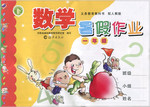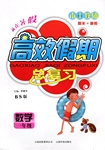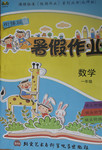题目内容
A friend of mine, in response to a conversation we were having about the injustices of life ,asked me the question,“Who said life was going to be fair, or that it was even meant to be fair?” Her question was a good one. It reminded me of something I was taught as a youngster :life isn’t fair. It’s a disappointment, but it’s absolutely true .One of the mistakes many of us make is that we feel sorry for ourselves, or for others ,thinking that life should be fair, or that someday it will be .It’s not and it won’t be .
One of the nice things about surrendering (屈从)to the fact that life isn’t fair is that it keeps us from feeling sorry for ourselves by encouraging us to do the very best we can with what we have . We know it’s not “life’s job ”to make everything perfect :it’s our own challenge .Surrendering to this fact also keeps us from feeling sorry for others because we are reminded that everyone is dealt a different hand ; everyone has unique strengths and problems in the process of growing up, facing the reality and making decisions; and everyone has those times that they feel unfairly treated.
The fact that life isn’t fair doesn’t mean we shouldn’t do everything in our power to improve our own lives or the world as a whole. To the contrary , it suggests that we should .When we don’t recognize or admit that life isn’t fair ,we tend to feel pity for others and for ourselves .Pity ,of course ,is a self –defeating emotion that does nothing for anyone ,except to make everyone feel worse than they already do .When we do recognize that life isn’t fair, however ,we feel compassion (热情)for others and for ourselves. And compassion is a heartfelt emotion that delivers loving-kindness to everyone it touches .The next time you find yourself thinking about the injustices of the world, try reminding yourself of this very basic fact .You may be surprised that it can make you out of self-pity and into helpful action.
小题1:The writer thought of his friend’s question as a good one because .
小题2:The second paragraph of the passage mainly tells us that .
小题3:From the passage, we can learn that the author’s attitude to life is .
小题4:Which of the following could be the best title of the text ?
One of the nice things about surrendering (屈从)to the fact that life isn’t fair is that it keeps us from feeling sorry for ourselves by encouraging us to do the very best we can with what we have . We know it’s not “life’s job ”to make everything perfect :it’s our own challenge .Surrendering to this fact also keeps us from feeling sorry for others because we are reminded that everyone is dealt a different hand ; everyone has unique strengths and problems in the process of growing up, facing the reality and making decisions; and everyone has those times that they feel unfairly treated.
The fact that life isn’t fair doesn’t mean we shouldn’t do everything in our power to improve our own lives or the world as a whole. To the contrary , it suggests that we should .When we don’t recognize or admit that life isn’t fair ,we tend to feel pity for others and for ourselves .Pity ,of course ,is a self –defeating emotion that does nothing for anyone ,except to make everyone feel worse than they already do .When we do recognize that life isn’t fair, however ,we feel compassion (热情)for others and for ourselves. And compassion is a heartfelt emotion that delivers loving-kindness to everyone it touches .The next time you find yourself thinking about the injustices of the world, try reminding yourself of this very basic fact .You may be surprised that it can make you out of self-pity and into helpful action.
小题1:The writer thought of his friend’s question as a good one because .
| A.he also wanted to know who held such an opinion |
| B.it made him recall something during his childhood |
| C.like his friend , he also thought life was unfair |
| D.he learned something from the question as a youngster |
| A.it’s nice to accept the injustice of life | B.it’s nice to surrender to life |
| C.we should not feel sorry for everything | D.we should not surrender to life |
| A.negative | B.positive | C.self-pity | D.indifferent |
| A.A Helpful Action: Try to Feel Compassion | B.A Good Question: Why Life Isn’t Fair |
| C.Do Our Best to Improve Ourselves | D.Surrender to the Fact That Life Isn’t Fair |
小题1:C小题1:A小题1:B小题1:D
略

练习册系列答案
 暑假作业海燕出版社系列答案
暑假作业海燕出版社系列答案 本土教辅赢在暑假高效假期总复习云南科技出版社系列答案
本土教辅赢在暑假高效假期总复习云南科技出版社系列答案 暑假作业北京艺术与科学电子出版社系列答案
暑假作业北京艺术与科学电子出版社系列答案
相关题目
 nd it is happening now. An area, the size of England, is cleared of primary vegetation(植被)every year." Smith said.
nd it is happening now. An area, the size of England, is cleared of primary vegetation(植被)every year." Smith said.  nses of sight, touch, hearing, smell, and taste to survive in the world, find food and mates, lay eggs in an appropriate place, migrate, and avoid hungry predators.
nses of sight, touch, hearing, smell, and taste to survive in the world, find food and mates, lay eggs in an appropriate place, migrate, and avoid hungry predators.  scis, a long, coiled tube. Butterflies force blood into the tube to straighten it out, allowing them to feed. Butterflies get all their food from this tube.
scis, a long, coiled tube. Butterflies force blood into the tube to straighten it out, allowing them to feed. Butterflies get all their food from this tube.  ind them
ind them just want to tell the story of an angel(天使)going to first grade.”
just want to tell the story of an angel(天使)going to first grade.”